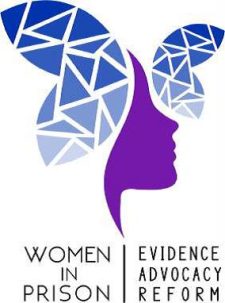This website uses cookies so that we can provide you with the best user experience possible. Cookie information is stored in your browser and performs functions such as recognising you when you return to our website and helping our team to understand which sections of the website you find most interesting and useful.
Vance Center Commemorates Bangkok Rules 10th Anniversary
December 2020
The Vance Center’s Human Rights and Access to Justice Program, under its Women in Prison Project, launched a social media campaign to commemorate the 10th anniversary of the United Nations Rules for the Treatment of Women Prisoners and Non-Custodial Measures for Women Offenders (The Bangkok Rules). Adopted by the United Nations General Assembly on December 21, 2010, the Bangkok Rules are the first international instrument providing detailed guidelines on responding to the gender-specific needs of women in contact with the criminal justice system.
Although women represent a minority of the global prison population, their rate of imprisonment has grown rapidly over the last two decades. As the UN Special Rapporteur on Violence Against Women has said, “much more remains to be done to identify and address the pathways to women’s incarceration; to establish better, safer and more gender-sensitive conditions for women prisoners; to ameliorate the negative consequences of women’s imprisonment; and to reduce the numbers of women in prison around the world.[1]
Answering this call, the Vance Center’s Women in Prison Project in 2018 convened the first international conference of women prisoners’ advocates in Bogota, Colombia.[2] From this conference arose the first-ever global network of advocates for women prisoners: the Women in Prison Network. Connected via an online platform, the Network includes 45 individual advocates (including formerly incarcerated women) and 34 organizations from 21 countries representing every continent. The Network is a safe space for advocates to share information and best practices, seek collaborations, and build capacity for improved monitoring and reporting of conditions in women’s prisons worldwide.
The social media campaign raised awareness of the Bangkok Rules while showcasing the work of members of the Women in Prison Network. These advocates, often formerly incarcerated women themselves, have devoted their lives to improving conditions for women in prison all over the world.
Follow the hashtags #BangkokRules10 #womeninprison #rightsofwomeninprison and the Vance Center on social media to learn more about the Bangkok Rules and the work of the Women in Prison Network on behalf of women in prison.
Instagram: @vancecenternyc
Facebook: @Vance.Center
LinkedIn: Cyrus R. Vance Center for International Justice
Twitter: @VanceCenter
The Women in Prison Network also recently submitted a Written Opinion to the Inter-American Court of Human Rights addressing the request from the Inter-American Commission on Human Rights for an Advisory Opinion related to “Differentiated Approaches to Persons Deprived of Liberty”.
In the Written Opinion, the Vance Center and the Women in Prison Network analyzed good practices adopted by some States in relation to women in prison who are pregnant, postpartum, or lactating, as well as girls and boys who live with their mothers in detention. The analysis also included how such States have interpreted the rights to equality and to live free from all forms of discrimination within the prison context.
The Written Opinion presented experiences of various member organization of the Network and made recommendations on State’s obligations as regards these issues. The following members of the Women in Prison Network contributed to the Written Opinion: A Little Piece of Light (United States), AdvocAid (Sierra Leone), Associação Elas Existem – Mulheres Encarceradas (Brazil), CleanStart (Kenya), Corporación Humanas (Colombia), Faraja Foundation (Kenya), Karen Yololtzy Leyva Martínez (Mexico), Rosa Julia Leyva Martínez (Mexico), Mattos Filho, Veiga Filho, Marrey Jr. e Quiroga Advogados (Brazil), Observatorio Venezolano de Prisiones (Venezuela), Penal Reform International, Prawa (Nigeria), and Silvia Martínez (Argentina).
[1] Special Rapporteur on Violence Against Women, Pathways to, conditions and consequences of incarceration for women, UN Doc. A/68/340
[2] Other examples of initiatives under the Project include:
- The report “Women in Prison: Africa Regional Initiative,” developed in collaboration with NGOs and law firms in Nigeria, The Gambia, Malawi, Kenya, and Tanzania. The report surveys what is currently known about women’s incarceration in these five African countries, both in law and practice. It provides a detailed analysis of these countries’ compliance with domestic, regional, and international standards on women’s incarceration.
- Mobilizing the Women in Prison Network and conducting research on government responses to the Covid-19 pandemic in detention centers for women in the Global South. The research focused on six key areas: healthcare, prison protocols and rules, children in prison with their mothers, rehabilitation and release, the criminal justice system, and prison staff and covered 17 Global South countries. Based on the assessment, the Network submitted open letters to the African Commission on Human and People´s Rights and the Inter-American Commission on Human Rights urging states to ensure that COVID-19 responses consider the unique needs of women in prison.
- Conducting a year-long study in partnership with NGO AdvocAid on the causes and consequences of women’s imprisonment in Sierra Leone. Following the study, the Vance Center and AdvocAid facilitated a series of training workshops for police officers in Sierra Leone.


